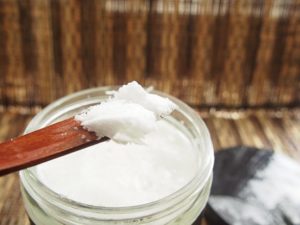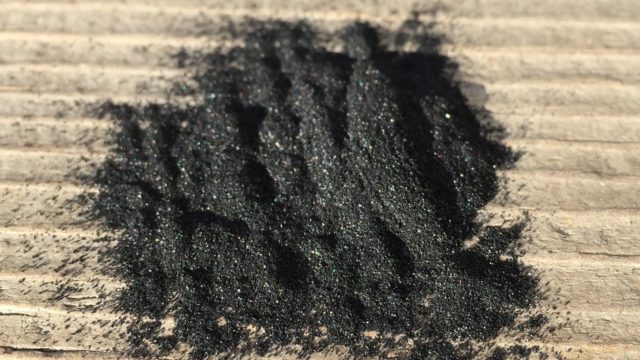From bright, white smiles to unique grins, some people are willing to go to extremes for their teeth. Let’s take a look at some of these popular dental trends and fads and why you should avoid them!
Teeth Cleaning & Whitening Trends & Fads
Our first set of dental fads to avoid involves cleaning and whitening your teeth. Having a bright, white smile is considered desirable, but for many it’s a challenge for many reasons. From oil pulling to charcoal teeth whitener, baking soda teeth whitening to using a hydrogen peroxide rinse, we’ve got the answers you need.
1. Activated Charcoal

Activated charcoal is a common substance that recently hit the scene as a teeth whitening option. It comes from burning carbon-rich materials, like wood and coal, at extremely high temperatures.Activated charcoal is odorless and looks much like you would expect, a black powder.
How Does Activated Charcoal Work?
Activated charcoal is highly absorbent and capable of stripping toxins from other substances. Consequently, the ability to absorb toxins makes it a viable treatment for overdoses, chronic kidney disease, and digestive issues. Activated charcoal is also a common water filtration agent.
Is Activated Charcoal Good for Your Teeth?
At first glance, activated charcoal teeth whitener definitely whitens and brightens your teeth. It’s become a common teeth whitening alternative, and you can find activated charcoal toothpaste at your local supermarket.
Given the ability to absorb toxins, there are additional arguments for its benefits. However, over time, the charcoal erodes your tooth enamel. There are safer options for whitening your teeth.
2. DIY Teeth Whiteners
Why pay for professional teeth whitening when you can do it at home? There are hundreds of websites (even reliable ones!) that offer suggestions for DIY teeth whitening. The good ones include caveats and warnings about excessive use and questionable practices, but not all of them do.
Do Teeth Whiteners Work?
Just like the activated charcoal, some DIY teeth whiteners help, like baking soda and hydrogen peroxide. Unfortunately, it’s tough to know when you’ve gone too far or overused a mixture on your teeth because you can’t necessarily see the damage to your enamel.
Is DIY Teeth Whitening Good for Your Teeth?
A bright, white smile is appealing for many, but at what cost? Some people react poorly to the bleaching agents, and others take it a bit too far. If you want to explore teeth whitening, it’s best to visit your dentist for the best, and safest, outcome.
3. Oil Pulling
Oil pulling is the practice of swishing oil, usually coconut or sunflower oil, around your mouth for several minutes (up to 20) before spitting it out. The oil is supposed to fight gingivitis, plaque, and bad breath.
Does Oil Pulling Work?
There is mixed information about the effectiveness of oil pulling, and there are several caveats. You can’t swallow the oil, it takes several minutes of swishing to pull enough bacteria to be effective, and it’s not a substitute for brushing and flossing.
Is Oil Pulling Good for Your Teeth?
There is not enough research or data to support the notion that oil pulling is good for your teeth. It’s not recommended by the ADA (American Dental Association). If you choose to try oil pulling, it’s best to consult with your dentist to make sure you do it properly and it’s crucial that you maintain good oral care.
4. Brushing with Lemon Juice and Baking Soda
Many people suggest lemon juice and baking soda as a DIY toothpaste to whiten your teeth. Baking soda is a mild abrasive that is capable of removing some stains. Lemon juice is acidic, so it enhances the effects of the baking soda.
Does Baking Soda and Lemon Juice Work?
Baking soda is often included in toothpaste because it is effective in removing plaque. Combined with lemon juice it could be effective at removing stains, but there are some significant downsides to using the combination on your teeth.
Is Baking Soda & Lemon Juice Good for Your Teeth?
Since baking soda is a mild abrasive with a high pH, it theoretically neutralizes the lemon juice’s acidity. However, this isn’t necessarily the case, and the combination of baking soda and lemon juice could erode your tooth enamel and lead to more problems than a less-than-white smile.
5. Rinsing with Hydrogen Peroxide
Many dental care products contain hydrogen peroxide, especially for whitening teeth. You can find diluted (3%) hydrogen peroxide at your local drug store and even in some grocery stores.
Does Rinsing with Hydrogen Peroxide Work?
Rinsing with hydrogen peroxide is a home remedy for whitening teeth and reducing inflammation of the gums. Some people even suggest gargling with hydrogen peroxide to soothe a sore throat. Since it is a disinfectant, there is some support that hydrogen peroxide is effective.
Is Rinsing with Hydrogen Peroxide Good for Your Teeth?
Though rinsing with hydrogen peroxide can be effective, rinsing and gargling with it can irritate your gums. Also, if you accidentally swallow it, you could end up with an upset stomach. It’s also critical that you only use diluted hydrogen peroxide.
6. Fluoride-Free Toothpaste
Fluoride is a mineral that naturally fights cavities by strengthening enamel. It’s been added to toothpaste, mouthwash, and even water to reduce the risk of tooth decay. However, there is a recent trend to embrace fluoride-free toothpaste.
Should You Use Fluoride-Free Toothpaste?
People marketing “natural” toothpastes suggest that there are better alternatives for cavity prevention. However, experts say that these fluoride-free toothpaste may put you at greater risk for cavities.
Fluoride is a necessary ingredient in toothpaste because it actually strengthens your tooth enamel. In a time when not all water sources are fluoridated, using a toothpaste with fluoride is crucial.
Teeth Jewelry and Alteration Trends/Fads
Some people don’t care much about having straight, white teeth. Instead, they prefer an alternative look and alter their teeth in various ways to achieve a “unique” smile. Let’s take a look at some of those trends and the effect on teeth.
1. Diamond Implants
Popularized by celebrities like Drake and Katy Perry, these make your teeth sparkle with special bling. Gluing diamonds to your teeth is much like any other bonding process. They can even be removed with dental tools when you no longer want them.
Why Diamond Implants Should Be Avoided
Though some celebrity dentists claim that it does no damage to the teeth, that’s not always the case. Some people have a small divot drilled into the tooth to place the gem so that it remains flush with the tooth. Any time you drill your tooth unnecessarily, you cause irreversible damage.
2. Tooth Gap: The London Look
Over the past year dentists have noted a rise in women wishing to reverse corrections to their teeth to embrace their former gaps. With many celebrities, namely Brits, embracing their natural teeth gaps, it’s become a trend in teeth, especially among twenty-something women.
Why Widening Tooth Gap should be avoided?
Widening a tooth gap is not recommended because it can create more issues with your teeth and jaw. However, taking less drastic measures to narrow a wide gap could be beneficial rather than doing a poor job of closing a natural gap.
3. Grillz & Gold Teeth
Thankfully, this trend seems to be on the way out. Filling your mouth with gold, crystals, or other types of metal jewelry may look unique and fun, but what does it mean for your oral health?
Why Grillz Should Be Avoided
Attaching a lot of metal and gold to your teeth can damage the enamel, create more space for bacteria to build up, and make it more difficult to maintain good oral health. Adding metal to your mouth can also be toxic and create health problems.
So, while trends and fads can be fun to try, it’s always best to check with your dentist first. Is it time for a checkup? Find your nearest Jefferson Dental & Orthodontics and book an appointment today!




